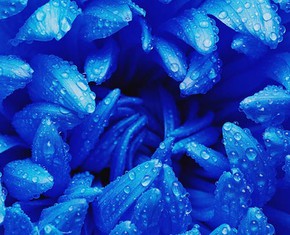The views expressed in our content reflect individual perspectives and do not represent the authoritative views of the Baha'i Faith.
We all get mad. Others hurt us, on purpose or by accident. Things don’t turn out our way, and our blood boils. This can make us react in ways we later regret – so what can we do about our anger?
The ancient Greek philosopher Aristotle believed in the necessity of anger – and in its usefulness. In his theory of virtue, anger can be virtuous if used appropriately and moderately. In Nicomachean Ethics, Aristotle wrote: “The man who is angry at the right things and with the right people, and, further, as he ought, when he ought, and as long as he ought, is praised.”
According to this perspective, a person could be justifiably angry at someone who has done him or her an injustice – or even more importantly, has perpetrated injustice in general.
A few centuries after Aristotle came Seneca, a Roman philosopher who begged to differ. Seneca believed that anger was never justified, and had no real use in a good life.
So what do Baha’is believe on this matter? It may surprise you to know that the Baha’i teachings seem to side with Aristotle. The reason, according to Abdul-Baha in his book Some Answered Questions, is that anger, like other emotions, is not intrinsically bad:
In the innate nature of things there is no evil — all is good. This applies even to certain apparently blameworthy attributes and dispositions which seem inherent in some people, but which are not in reality reprehensible. For example, you can see in a nursing child, from the beginning of its life, the signs of greed, of anger, and of ill temper; and so it might be argued that good and evil are innate in the reality of man, and that this is contrary to the pure goodness of the innate nature and of creation. The answer is that greed, which is to demand ever more, is a praiseworthy quality provided that it is displayed under the right circumstances. Thus, should a person show greed in acquiring science and knowledge, or in the exercise of compassion, high-mindedness, and justice, this would be most praiseworthy. And should he direct his anger and wrath against the bloodthirsty tyrants who are like ferocious beasts, this too would be most praiseworthy. But should he display these qualities under other conditions, this would be deserving of blame.
It follows therefore that in existence and creation there is no evil at all, but that when man’s innate qualities are used in an unlawful way, they become blameworthy.
From this perspective, anger itself is not inherently good or bad, but becomes so when used at a certain time, in a certain way. So according to Aristotle and Abdu’l-Baha, anger, if used appropriately, can be a noble quality.
Another term for this nuanced anger – “righteous indignation” – means being angered by something unfair, and spurred on to remedy the situation. But we must be careful – we can easily deceive ourselves into thinking that we are justified in getting angry at something or someone when in fact we are dealing with a misunderstanding or a mere triviality. Yelling at a waiter, “I ORDERED A LATTE, NOT A CAPPUCCINO!” is not really justified. It may not be the waiter’s fault. More importantly, it’s just a coffee! (Though it’s sometimes hard to put things in perspective when one lives in a coffee culture.)
RELATED: Anger and Jealousy Prevention: How to Avoid Lion Attacks
Racial oppression, environmental destruction, human trafficking, domestic violence – things like this clearly warrant an angered response. But this doesn’t mean that there are no other “smaller” things that call for anger. In the end, we all need to carefully check our conscience as to how to respond to a situation, both inwardly and outwardly. We may feel justified in our anger, but we still need to consider whether or how to express it. Going around ranting, destroying things out of rage, or hurting others might counteract the aims we wish to achieve. To avoid this, we have to temper our tempers, and guide our anger with reason. Once our actions become unreasonable, our judgment has been clouded by our anger. It’s often hard to draw ourselves out of this emotional state, sometimes only after the damage to others or ourselves has been done.
Whether you agree with Aristotle or Seneca, there is still a lot that we can learn about how to control our anger. Even if anger does have a use at the right time and place, in many instances, anger does get the better of us. Often we don’t use our anger to accomplish a noble end; anger uses us to do the opposite. It fills us with rage, clouds our judgment, and takes the reins of our rational minds out of our hands. We need to learn when and how to use anger for good, but we also need to consider how to manage our anger so that it doesn’t control our lives.
Of course, in general the Baha’i teachings repeatedly urge all people to forego their anger and replace it with love for humanity. Abdu’l-Baha wrote:
… as the days go by, increase thy store of love … Bend thou with tenderness over the servitors of the All-Merciful, that thou mayest hoist the sail of love upon the ark of peace that moveth across the seas of life. Let nothing grieve thee, and be thou angered at none. It behoveth thee to be content with the Will of God, and a true and loving and trusted friend to all the peoples of the earth, without any exceptions whatever.
How can we learn to do that – to control our anger and turn it into love? In the next essay, we’ll explore that important question.
















Comments
Sign in or create an account
Continue with Googleor